

.jpg)
The latest official figures released (from the year 2023) are the worst since the Abortion Act of 1967. “The scale is staggering, 762 abortions every day”, says Christian group Both Lives UK.
.jpg)
The ‘My voice, My choice’ resolution is adopted by a majority of the EU parliament. A Christian MEP says “it is painful to see that the majority of the European Parliament does not recognise that unborn life need protection”.

The proposal to create lists of healthcare objectors reopens the debate in Spain on the boundaries between rights, confidentiality, and professional freedom. An article by Susana Cossio.

The AEE considers it “demagogic” to propose a constitutional reform to recognise abortion as a right and warns that “every abortion is a failure of society”.
.jpg)
According to official data from 2024, abortions in public health centres are on the rise. 94.6% are requested by the woman, a record high.
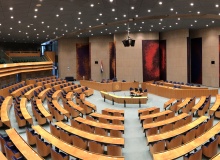
Meanwhile, another initiative to resist pressure from the EU on this issue was tabled by two Christian parties and passed.

Doctors and psychologists warn of the importance of women who want to have an abortion having information about its consequences, not only physical but also emotional.
Around 2,000 participants took part in the 15th March for Life in Zurich (capital of Switzerland) on 20 September.
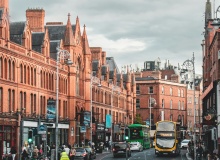
According to the data of the Department of Health, 1 in 6 pregnancies ends in abortion. That is a surge of almost 9% compared to 2023.
.jpg)
Does a renewed interest in a ‘Christian past’ automatically lead to an openness to the gospel? Does undoing ‘woke’ paradigms necessarily mean that there is a genuine interest in the values of Jesus? In the current cultural shift, the challenge for Christians in Europe is to continue to be uncomfortable for those in power.
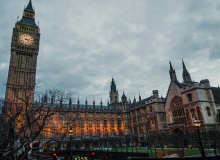
The amendment to decriminalise abortion for women at any stage of pregnancy was passed by 379 votes to 137. “This is not healthcare, this is abandonment”, say Christians.
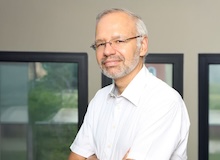
In his latest book, an award-winning cardiologist with a long career critically questions the prevailing thinking in the Western world on 15 fundamental issues. Interview with Manuel Martínez-Sellés.
.jpg)
The country has seen an increase of a 7% between 2014 and 2024.

The survey shows that the majority of Catholics are 55 or older, while the highest percentage of evangelicals are between 18 and 24 years old.
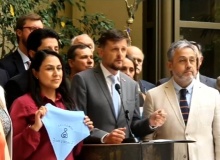
“We cannot accept the promotion of a free abortion law, while the crisis of vulnerable children continues to be forgotten”, said members of the national parliament.

The 23 February election could turn frustration into a historic rise of the far right. A journalist points to the importance of “acknowledge other opinions and not immediately condemn them”.

The Congress Hall of Honour hosts the film ‘Amada’ and the signing of the Commitment to Life by senators and deputies from several parties.
“Prosecutors will need to consider not only all the facts of the particular conduct, but also the context in which it takes place”, says the Crown Prosecution Services.

“Today, the court has decided that certain thoughts, silent thoughts, can be illegal in the United Kingdom”, Adam Smith-Connor said after the court ruling.

In 2023, 103,097 abortions were performed in Spain, an increase of 4.8% over the previous year. The pharmacological method is on the rise.
.jpg)
As the coalition government pushes for liberalisation of abortion, pro-life organisations say their message is increasingly being heard.

Decisions such as ending the ban on performing same-sex marriages, or the ordination of LGTBQI+ people, could lead more people to abandon the Methodist churches, which suffered a schism in 2019.
.jpg)
Walking to Parliament Square in London, the March For Life UK defended that “abortion is not healthcare”.
.jpg)
The bill aims to give better alternatives to mothers in fragile economic situations. In Italy, evangelicals welcome it as a way of complying with the 1978 law.
.jpg)
Last year, 12,045 terminations of pregnancies were recorded. Abortions are legal in the first twelve weeks.

Las opiniones vertidas por nuestros colaboradores se realizan a nivel personal, pudiendo coincidir o no con la postura de la dirección de Protestante Digital.